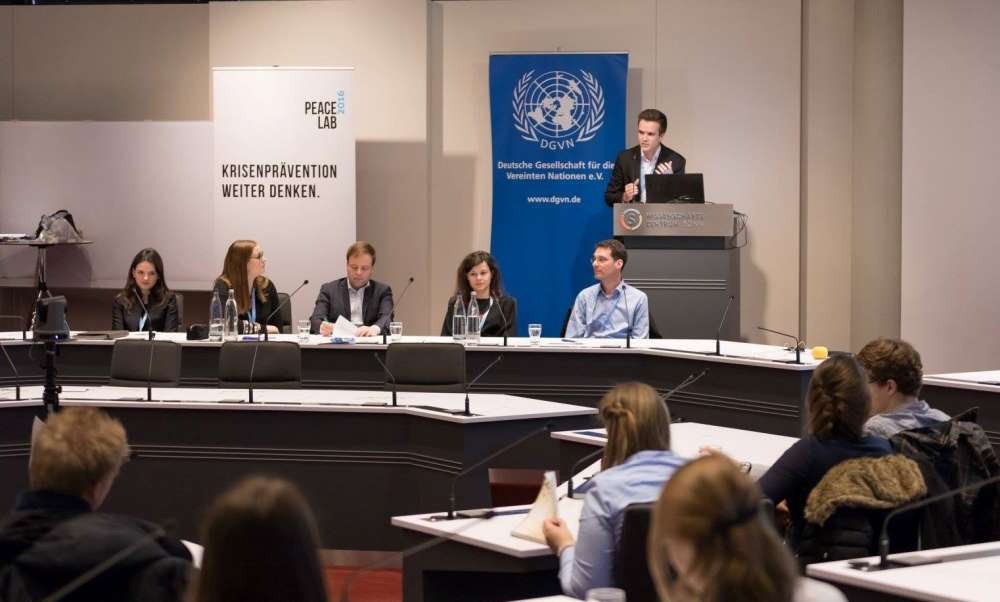PeaceLab2016: A Fresh Look at Crisis Prevention

Ladies and gentlemen, we need you! We need your critical questions, your experience, your ideas and your suggestions. We should talk openly about what we are already doing well, and how we can become even better and more efficient.
With these remarks at an event on 5 July 2016, then-Foreign Minister Frank-Walter Steinmeier launched the debate on what should be in the government’s new cabinet white paper on crisis prevention, conflict management and peacebuilding. Between the summer of 2016 and March 2017, officials from the foreign, development, interior, and defense ministries as well as members of parliament from all political parties discussed with members of civil society, academia, implementing organizations, students, the media, the private sector, and with individual citizens. The PeaceLab2016 debate was all about this question: How to improve German policy on crisis prevention, conflict management and peacebuilding? The Global Public Policy Institute (GPPi) in Berlin facilitated the discussion and ran the PeaceLab blog.
Participation in the debate exceeded all expectations. Contributors may well have been wary of another public consultation: PeaceLab2016 followed the recent “Review2014” of German foreign policy and the 2016 White Paper on Security Policy, and it was held in parallel with the drafting of the German Development Report 2017. The organizers of PeaceLab2016 at the foreign office and GPPi had thus envisaged about five or six events and just under 50 contributions on the PeaceLab2016 blog. In the end, the process attracted more than two dozen organizations that put together a total of 27 conferences and workshops with more than 1,800 participants. 116 authors contributed 132 articles on the blog. The relevant subcommittee in parliament also repeatedly discussed the guidelines. From the debate emerged a “community that had not existed before, the sheer scope and diversity of which resulted only from the PeaceLab2016 process,” as Jörn Grävingholt, co-chairman of the German government’s Advisory Board for Civilian Crisis Prevention, wrote.
This publication aims to provide an impression of the diverse opinions and recommendations that emerged from the small expert roundtables and larger public events, from blog posts and tweets. Rather than trying to cover everything, the editorial team at GPPi tried to select topics and arguments that are representative for the whole debate, that highlight areas of consensus, and that pinpointed disagreements.
…
The full publication is available for download.
The PeaceLab2016 summary is also available in German.







